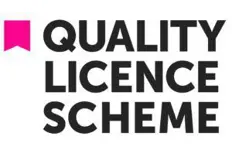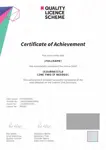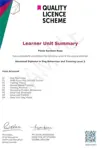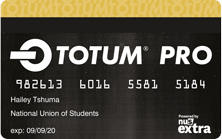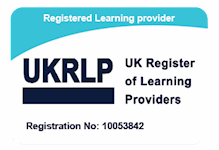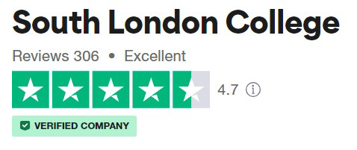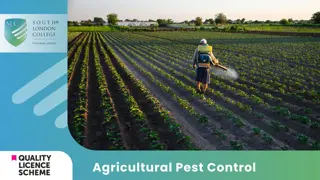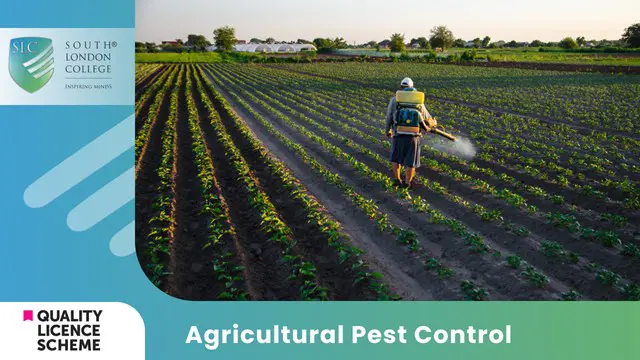
Agricultural Pest Control
Level 4 Diploma | Endorsed by Quality License Scheme | QLS Endorsed Certificate Included
South London College
Summary
- Certificate of completion - Free
- Exam(s) / assessment(s) is included in price
- Tutor is available to students
- TOTUM card available but not included in price What's this?
Add to basket or enquire
Overview
Diploma in Agricultural Pest Control - Level 4
Pest control is very crucial in agriculture to protect crops from pests and to increase food production. However, a proper pest control administration requires extensive knowledge and skills, and this Diploma in Agricultural Pest Control – Level 4 has been developed to equip you with just that. This comprehensive course will sizably educate you on pest control and pest controlling activities to help you kick start a successful career in agriculture or to level up your career within the industry.
This Ofqual regulated course will first lay the fundamentals of pest control and pesticide controls. You will explore the common pesticide application methods to properly administer them in crops and harvest, followed by modules that will disclose the various safety and health measures that has to be practiced while implementing pest control in agriculture.
This course is a wonderful opportunity for you to get your hands on the EPA and WPS required training for agriculture. This course will also discuss about beneficial insect identification to further enhance your knowledge on pest control. By the end of this course, you will possess all what it takes to properly administer pest control for your agricultural crops.
The course has been endorsed under the Quality Licence Scheme. The completion of this course alone does not lead to a regulated qualification* but may be used as evidence of knowledge and skills gained. The Learner Unit Summary may be used as evidence towards Recognition of Prior Learning if you wish to progress your studies in this subject. To this end the learning outcomes of the course have been benchmarked at Level 3 against level descriptors published by Ofqual, to indicate the depth of study and level of demand/complexity involved in successful completion by the learner.
The course itself has been designed by Imperial Learning Limited* to meet specific learners’ and/or employers’ requirements which cannot be satisfied through current regulated qualifications.
The Quality Licence Scheme endorsement involves robust and rigorous quality audits by external auditors to ensure quality is continually met. A review of courses is carried out as part of the endorsement process.
Please Note: This Course is Based on USA Standards
Eligible for TOTUM card - TOTUM is the #1 student discount card and app giving you access to exclusive student deals on food and fashion, tech and travel and everything in between.
*Regulated qualification refers to those qualifications that are regulated by Ofqual / CCEA / Qualification Wales
Achievement
Course media
Description
What Will I Learn?
- Have a clear understanding of the fundamentals of pest control.
- Learn about pesticide controls.
- Learn about the agricultural pesticide application.
- Gain insight into common pesticide applications and methods.
- Have an understanding on the safety and health measures that has to be practiced while incorporating pest control in agriculture.
- Insight into EPA and WPS required training.
- Learn about beneficial insect identification.
- Understand about pests such as honey bees, Africanised honey bees, wasps, cotton insects and other common crop insects and how to control them.
COURSE CURRICULUM
★ MODULE 01 : Pesticide Fundamentals Introduction
- Insecticides
- Pesticide Rule Index
- Questions for Quiz
★ MODULE 02 : Agricultural Pesticide Application Information
- Changes to EPA’s Farm Worker Protection Standard
- Agricultural Employers Responsibility
- Four Basic WPS Requirements
- General Duties of WPS
- Understanding the Worker Protection Standard
- Mitigation
- Does the Worker Protection Standard Apply to you
- Who Does the WPS Protect
- Who is not a Handler
- Special Applications Restrictions in Nurseries and Greenhouses
- Federal Pesticide Recordkeeping Requirements
- Agricultural Pesticide Application Introduction Post Quiz Answers in rear near References
★ MODULE 03 : Common Pesticide Applications And Methods
- Insect Growth Regulators
- IPM Methods (Types of Pest Control)
- Adjuvants
★ MODULE 04 :Epa Required Training Citation Section
- WPS Responsibility
- What Employers must do for both Workers and Handlers?
- Pesticide Safety, Application and Hazard Information
- Decontamination Supplies and Requirements
- WPS Requires Providing Decontamination Sites
- Decontamination Solutions
- Further Requirements for Employers of Workers
- Notice about Applications
- Sign Size
- Restricted–Entry Interval (REI)
- Workers May Designate a Representative
- Notification of Pesticide Applications
- Entry Restrictions in the Treated Area
- EPA Required Training Citation Section Post Quiz
★ MODULE 05 : Ppe, Safety And Health Section
- Personal Protective Equipment (PPE) Definitions
- Personal Protective Equipment (PPE)
- Table 1.Minimum PPE and work clothing for pesticide-handling activities
- The Central Notification Board
- Personal Protective Equipment Requirements
- PPE Cleaning Information
- Application Exclusion Zone” or AEZ
- Heat-Related Illnesses and First Aid
- How to Triple-Rinse
- Topic 5-PPE, Safety and Health Section Post Quiz.
★ MODULE 06 : Wps Required Training Section
- 2017 Training Requirements and Resources
- 2018 Training Requirements and Resources and Beyond
- 2018 Handler Training
- 2017 Pesticide Safety Training Review
- Labeling Information Section
- Label Requirements
- Appendix ACriteria for WPS Pesticide Safety Poster
- Appendix BMore information in rear of Manual
- Which Pesticides Uses are NotCovered
- Workers and Handlers Section
- Employers of Commercial Pesticide Handlers
- Early –Entry Work Situations
- Further Requirements for Employers of Workers
- General Protections for Early-Entry Workers
- Exception for an Agricultural Emergency 170.603(c)
- PPE FOR EARLY-ENTRY WORKERS 170.605(d) & (e)
- Further Requirements for Employers of Handlers Citation 32. -37 Restrictions during Applications and Monitoring Handlers
- Handling, Transporting, Storing and Disposing of PesticidesCitation 30.-32
- Personal Protection Equipment (PPE)Citation 33.a
- Further Requirements for Employers of Handlers
- WPS Exemptions and Exceptions for Crop Advisors
★ MODULE 07 : Beneficial Insect Identification
- Soldier Beetle
- Syrphid flies –Hoverflies
- Centipede
★ MODULE 08 : Honey Bee Detailed Section
- Genus Apis
- Micrapis, Megapis and Apis
- Understanding Both AHB and EHB Bee Colony
- Flight Behavior
- Habit Summary
★ MODULE 09 : Africanized Honey Bee Section
- Potential Range of Africanized Bees in the United States
- Understanding Africanized Honey Bees
- Selection of Nesting Site
- Reproductive Capacity
★ MODULE 10 : Modern European Bee Hive Section
- Potential Range of Africanized Bees in the United States
- Understanding Africanized Honey Bees
- Selection of Nesting Site
- Reproductive Capacity
★ MODULE 11 : Bee Control Section
- Removal of the Comb
- Specific Bee Treatments
- Insecticides that Kill Bees Intentionally and otherwise
- Carbaryl
- Deltamethrin (Delta Dust or Drione Dust)
- Permethrin
- Pyrethroids
★ MODULE 12 : Bee-Related Inspections Section
- Pre-Inspection Planning
- Identifying and Inspecting Potential Pesticide Sources
- Sample Handling
- Beekeeping
★ MODULE 13 : Wasp Identification Section
- Yellowjackets
- Paper Wasp
- Yellowjacket Management
- Other Wasps.
★ MODULE 14 : Common Crop Insects And Pesticide Controls
- Aphid
- Cotton Aphid
- Green Peach Aphid
- Cabbage Looper
- Young Cabbage Loopers
- Colorado Potato Beetle
- Mexican Bean Beetle
★ MODULE 15 : Cotton Insect And Related Pest Identification
- Boll Weevil
- Bollworm/Tobacco Budworm
★ MODULE 16 : 1 Node Ant Identification And Control Section
- Termites
- Ant Control
- Ant Classification
- Argentine Ant -1 node ant
- Ghost Ant Tapinoma melanocephalum-1 node antSubfamily Dolichoderinae
- Harvester Ant-1 node ant
★ MODULE 17 : 2 Node Ant Identification And Control Section
- Acrobat Ant –2 node ant
- Bigheaded Ant –2 nodes
- Little Black Ant
- Little Black Ant Identification and Control –2 node antMonomorium minimum
- Pavement Ant –2 node ant
- More on Ant Prevention
- Topic 17 -2 node Ant Identification and Control Section Post Quiz
- Pesticide/Insect Glossary
- Charts and Forms Section
Access Duration
The course will be directly delivered to you, and you have 12 months access to the online learning platform from the date you joined the course. The course is self-paced and you can complete it in stages, revisiting the lectures at any time.
Method of Assessment
In order to complete the Diploma in Agricultural Pest Control at QLS Level 4 successfully, all students are required to complete a series of assignments. The completed assignments must be submitted via the online portal. Your instructor will review and evaluate your work and provide your feedback based on how well you have completed your assignments.
Certification
Those who successfully complete the course will be issued the Diploma in Agricultural Pest Control at QLS Level 4 by the Quality Licence Scheme.
Course Code: QLS-04870
Awarding Body (Accreditation)
The Quality Licence Scheme is part of the Skills and Education Group, a charitable organisation that unites education and skills-orientated organisations that share similar values and objectives. With more than 100 years of collective experience, the Skills and Education Group’s strategic partnerships create opportunities to inform, influence and represent the wider education and skills sector.
The Skills and Education Group also includes two nationally recognised awarding organisations; Skills and Education Group Awards and Skills and Education Group Access. Through our awarding organisations we have developed a reputation for providing high-quality qualifications and assessments for the education and skills sector. We are committed to helping employers, organisations and learners cultivate the relevant skills for learning, skills for employment, and skills for life.
Our knowledge and experience of working within the awarding sector enables us to work with training providers, through the Quality Licence Scheme, to help them develop high-quality courses and/or training programmes for the non-regulated market.
Who is this course for?
- Students
- Job seekers
- Farmers
- Other professionals related to agricultural pest control
- Anyone willing to learn more about agricultural pest control
Requirements
- Learners should be age 19 or over, and must have a basic understanding of Maths, English, and ICT.
- A recognised qualification at level 3 or above in any discipline.
Career path
- Farmers – £8.57 per hour
- Farm Workers – £8.39 per hour
- Farm Manager – £27,636 per annum
- Pest Control Technician – £18,743 per annum
- Agricultural Engineer – £8,99 per hour
Questions and answers
Dear madam/ sir Can I join this course from India, Kerala. Where I can get more information about the course. Thank you.
Answer:Dear Nikesh, Thank you for your query. Yes of course you can join this course from India, thus you can find all the information on the website. Regards, Student Support Team.
This was helpful.
Certificates
Certificate of completion
Digital certificate - Included
Reviews
Currently there are no reviews for this course. Be the first to leave a review.
Legal information
This course is advertised on reed.co.uk by the Course Provider, whose terms and conditions apply. Purchases are made directly from the Course Provider, and as such, content and materials are supplied by the Course Provider directly. Reed is acting as agent and not reseller in relation to this course. Reed's only responsibility is to facilitate your payment for the course. It is your responsibility to review and agree to the Course Provider's terms and conditions and satisfy yourself as to the suitability of the course you intend to purchase. Reed will not have any responsibility for the content of the course and/or associated materials.

